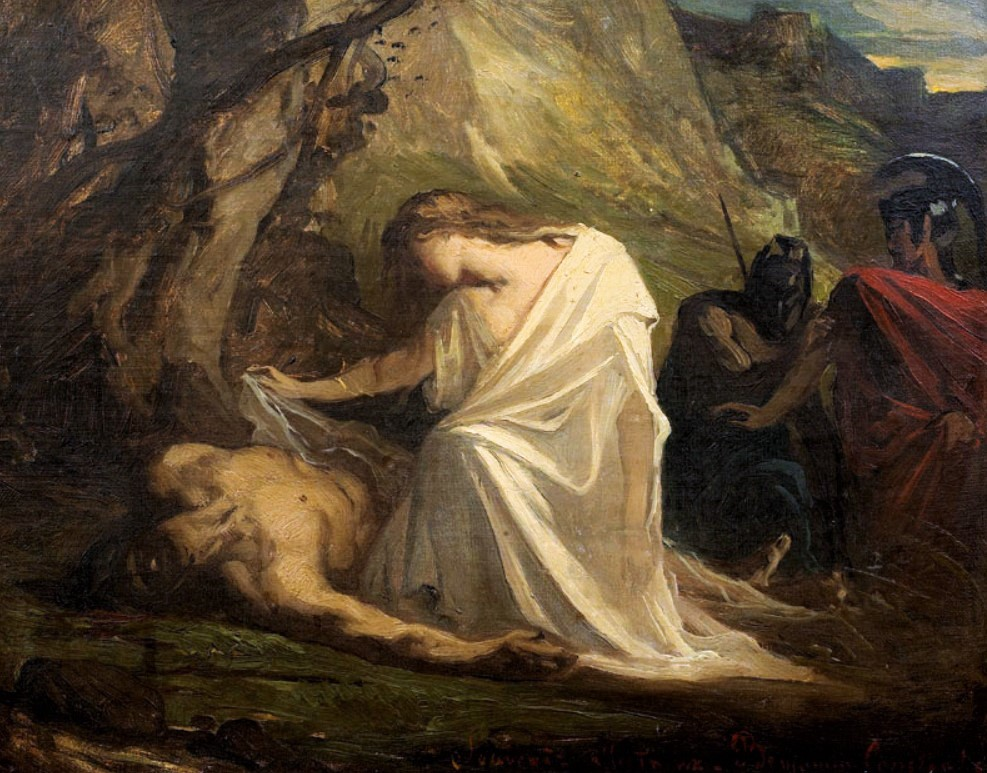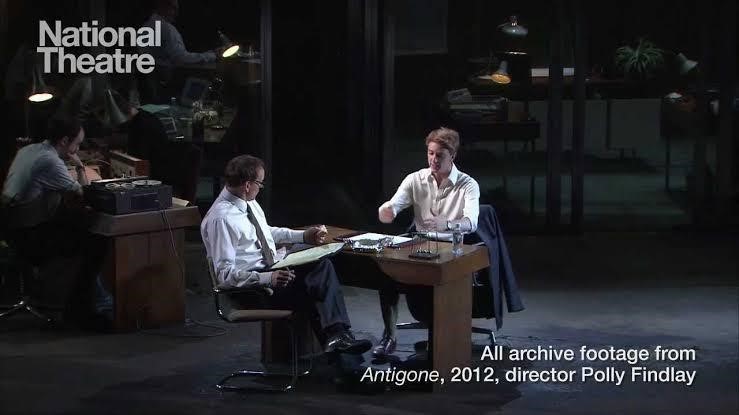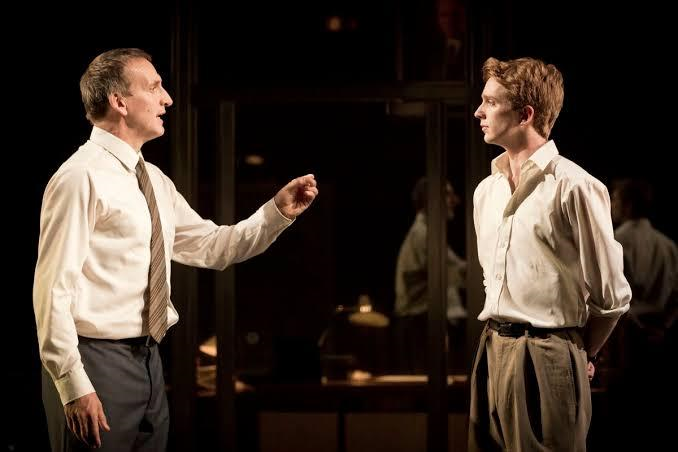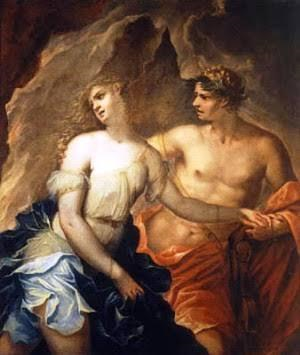Write a note on the functions of the chorus in Sophocles’ Antigone.
Or
How does Sophocles use the chorus in Antigone ? Do you think it represents his own point of view?
M.H. Abrams denotes chorus as a group of dancers, persona wearing masquerades, who sang songs and chanted verses, performing dancelike maneuvers at religious festivals. Sophocles has implemented the choral character and chorus to enchant, enlighten, enliven, enthrall and entertain the spectator of audience through commentaries and lyrical relief. Instances of dramatic actions and scenes wherein the chorus express traditional, moral, religious, ethical and social attitudes is revealed in the tragic drama Antigone. In this case, chorus functions in eulogizing lamentations of the cathartic plight of Creon associated to the tragic fate of his transgressions of heavenly laws. Or grieving maddening love of Haemon for Creon
The universality of the chorus survives in musical comedies and operas alike and tragic drama Antigone engrossed with the chorus in choral interludes as in the heart wrenching emotions arousal by the song of the chorus recalling the curse befall on the House of Labdacus. King Oedipus, King Creon and the progeny of royal clan are haunted by the grime murder and bloodshed. Furthermore terrible sufferings undergone by Danae, Lycurgus and Cleopatra resonate in contrast to Antigone’s awful suffering. During the Elizabethan age the Chorus was also applied to a single character who spoke the prologue and epilogue to a play, and sometimes introduced each act as well. The choral character served as the author’s vehicle for commentary on the play as well as or exposition of its subject, time, and setting, and the description of events happening offstage; ironic perspective of Chorus imitates invocation of Dionysus after Tiresias’ prophecy which can be starkly contrasted with the erelong justification of Creon’s edict; defiance to the divine laws or denial of Polynices’ corpse burial.
Chorus of Theban council consisting of elderly citizenry laments te grimacing grime of the royal legacy whose generations are preys to ruination. They are ruined throughout their race like ‘mounting tide’ and later ‘rolling dark heaves of sand as proclaimed by the chorus as reechoed and resonated in these lines as soon as Creon sentences Antigone to death and ironically absolutizes politicization of death.
Chorus:
“The ruin will never cease, cresting on and on
from one generation on throughout the race—
like a great mounting tide
driven on by savage northern gales,
surging over the dead black’ depths
rolling up from the bottom dark heaves of sand” [pg no. 91 lines 660-665]
“To combine, to harmonize, to deepen for the spectators the feelings excited in him by the sight of what has been passing on the stage— that is the one grand effect produced by the Chorus in Greek Tragedy.”
Bibliography and Further Reading
M.H. Abrams A Glossary of Literary Terms 7th Edition 1999.

Is the central figure in the tragedy not Antigone, but Creon? Discuss.
Or
Between Creon and Antigone who is the real tragic figure? Justify your answer.
Or
Describe and discuss Aristotelian tragic hero Creon and the protagonist Antigone with reference to textual evidence and critical evaluation.
Creon and Antigone are evidently manifestations of avowal to political sovereignty and commitment to fraternity of kinship respectively. These archetypal characters or dramatis personae are of Sophocles’ classical masterpiece Antigone. In the tragic drama Aristotelian hamartia invokes a provocative evocation through the fatal flaw of Creon’s defiance and transgressions to the divine laws of Heaven due to utmost denial of deceased Polyneices’ burial. And as far as hubris is concerned, readers and critics alike surely cast a probe to trace the superciliousness and haughtiness in the feminine figure of Antigone. Textual evidence and excerpted quotable illustration should be cited to be befitting; “I will bury him myself. And even if I die in the act, that death will be a glory. I will die with the one I love and loved by him—- an outrage sacred to the Gods!” (pg no. 63 lines 85-88) Antigone’s arrogance and vanity can be impersonating glorifying martyrdom as an eternal seeker of truth and justice. Antigone’s fate truly arouses in us feelings of pity, fear, awe and admiration which a tragic character is expected to arouse.
Although Creon embodies the epitome of loyal patriotism and welfare of polity nevertheless, this overindulgence with conscientiousness springs up arbitrariness, callousness, narrow-mindedness and obstinacy. On the contrary, Antigone is a damsel of family bonding, who exhibits the essence of humanity through advocacy of the claim of funerary rites of her dearest sibling Polynices. Creon establishes a hegemonic and patriarchal monarchy through defiance of unalterable and inevitable laws of divination. Despite being a secular believer, Creon’s utmost denial of granting funerary burial is the tragic flaw which delineates the peripetia or the reversal of fortune as the ominous foreboding misapprehensions prophesied by Tiresias, the disavowal and premonition of the enactment of the choral character, the rebellious spirit of Haemon and his stabbing of himself and finally suicide of Eurydice. Being neither villainous nor daredevil, either crafty or spiteful except viewing the world in a different light is the characteristic trait that Creon manifests within himself. In concluding Antigone symbolizes familial kith and kin brethrenship and adoration of cherishing fraternity whilst Creon symbolizes absolutization of polity through championing legendary statesmanship in his politicization of royal monarchy.

Write a note on the character of Haemon in Sophocles’ tragedy Antigone.
Creon’s heir, Haemon, is a main character emboldened with romantic engrossment with soon to be bride Antigone. Haemon is a personae of sacrificial romance for love of sweetheart maiden Antigone, who forsakes her living life in the ardor of life-in-death situation within the tombed rocky cavern. Creon is heroic in lambasting the royal decree of the injunction ordained by his father, Theban monarch, Creon. Disdaining the imprudence and absurdity of hegemonistic Creon, Haemon, the interlocutor, remonstrates “the city mourns” of the idealized fiance, Antigone. Furthermore, such a ‘brutal death’ for such a ‘glorious action’ arouses the tenderhearted Haemon in pity and admiration for his soon to be wife and thereby lectures Creon to the pathway of contemplation reawakening conscientiousness or prudent judgment.

Truly Haemon is in fact, maddened by the romantic love for the girl she idolizes and this is reflected as he exposes Creon’s vicious follies to peril Antigone at the enterprise of misfortune misery and injudicious entombed death. In this anticipation, ignominy of Creon, faces the harshest grumbling of Haemon, who scowls him to be a monarch of a desert island. This is manifested evidently in these crystal clear bold statement which delineates that he could stake life even soaring cliffs in justification of Antigone’s glory:
“She deserves a glowing crown of gold” and “What a splendid king you’d make of a desert island—
you and you alone.” [pg no. 97 and lines 826-827]

“Haemon is sort of between his father, Theban monarch, Creon and his betrothed lover and soon to be wife, Antigone, fighting to stay on both of their favors…” Luke Neberry the cast of National Theatre Antigone’s Production: Antigone and Haemon observations as the role of Haemon. Haemon is intensely desperate to be driven by the aura of passion and this is heightened by the obvious action in embracing death hood in togetherness with Antigone.
